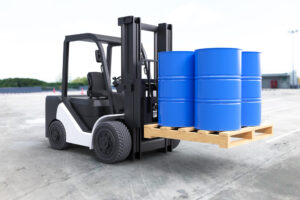Petroleum Wholesale: The Backbone of the Global Energy Market
In today’s fast-paced energy landscape, petroleum wholesale is the unsung hero that guarantees consistent fuel supply and price stability for industries and consumers alike. By buying petroleum products in bulk from refineries and reselling them to distributors and end-users, wholesalers play a crucial role in bridging the gap between production and consumption. This article provides an in‐depth look at petroleum wholesale—its definition, its role in the global economy, its supply chain dynamics, current industry trends, and the challenges it faces. Whether you are an industry insider or a curious reader, you’ll find valuable insights into one of the most pivotal sectors powering the modern world.
What Is Petroleum Wholesale?
Petroleum wholesale refers to the bulk purchase and distribution of refined petroleum products such as gasoline, diesel, jet fuel, heating oil, and lubricants. Wholesalers purchase these products in large quantities directly from refineries or primary suppliers. They then distribute them to various channels, including regional distributors, gas stations, and industrial end-users.
This market not only includes the physical trading of products but also operates robust futures markets that help stabilize prices. The ability to manage supply and hedge against risks makes petroleum wholesale indispensable in maintaining economic stability within the energy sector.
The Critical Role in the Global Economy
Petroleum wholesale serves as the lynchpin that connects the upstream production of crude oil to the downstream consumption by millions worldwide. Its importance is underscored by several key functions:
-
Supply Chain Efficiency: By managing vast volumes of petroleum products, wholesalers ensure that supplies run smoothly from refineries to end-users, minimizing disruptions that could affect everything from transportation to industrial production.
-
Price Stabilization: Long-term contracts and bulk purchasing enable wholesalers to mitigate price volatility. This in turn helps maintain fair fuel prices for consumers and stable operating costs for businesses.
-
Market Connectivity: Acting as intermediaries, wholesalers bridge the gap between multinational oil giants and local distributors, ensuring that even remote areas gain access to essential fuel supplies.
In essence, petroleum wholesale not only drives the operational engine of the global energy market but also influences economic growth and stability on a macro scale.
The Petroleum Wholesale Supply Chain
Understanding the petroleum wholesale industry starts with dissecting its supply chain, which is divided into three main segments:
1. Exploration and Production (Upstream)
The journey begins with the exploration and extraction of crude oil. Major players in this sector, including companies like ExxonMobil and Chevron, invest heavily in technology and resources to locate and extract oil.
2. Refining (Midstream)
Once crude oil is extracted, it is transported to refineries where it undergoes processing into various petroleum products. These refineries, operated by large companies or specialized refiners, use advanced technologies to produce a range of outputs from gasoline to jet fuel. The midstream segment ensures that the raw resource is transformed into market-ready products.
3. Petroleum Wholesale (Downstream)
At this stage, petroleum wholesalers purchase refined products in bulk and distribute them through their expansive networks. Their role is to store, transport, and sell these products either directly to large industrial customers or through smaller distributors who then supply retail markets. The efficient functioning of the petroleum wholesale sector is vital for ensuring that the refined products are available when and where they are needed.
4. Retail Distribution and Consumption
Finally, the petroleum products reach the consumer—be it through gas stations, airlines, or industrial users. This final link in the chain directly affects fuel prices and supply reliability.
Key Players in the Petroleum Wholesale Market
The petroleum wholesale market features a mix of global giants and regional specialists. Notable companies include:
-
ExxonMobil: A titan in the oil and gas industry, ExxonMobil plays a significant role in supplying petroleum products to wholesalers globally.
-
Royal Dutch Shell: Shell operates in over 70 countries, offering a broad spectrum of petroleum products that wholesalers can distribute regionally.
-
BP: BP’s extensive portfolio covers various refined petroleum products, contributing to market stability and reliable supply chains.
In addition to these major players, numerous smaller wholesalers operate at regional levels. These companies often have strong local connections and adapt their strategies to specific market demands.
Trends Shaping the Petroleum Wholesale Industry
Several trends are currently transforming the petroleum wholesale landscape, driven by technological innovation, environmental regulations, and market dynamics. Here are some of the most influential trends:
Increasing Demand for Cleaner Energy
As the world grapples with climate change, there is a growing push for cleaner energy. Although renewable sources are on the rise, petroleum products remain critical to global energy needs. In response, wholesalers are diversifying their portfolios to include alternative fuels such as biofuels and natural gas. These efforts help meet environmental targets while ensuring energy availability.
Digital Transformation of Supply Chains
Digital technologies such as advanced analytics, artificial intelligence, and blockchain are revolutionizing petroleum wholesale operations. These tools help predict market trends, optimize logistics, and enhance transparency throughout the supply chain. By embracing digital transformation, wholesalers improve efficiency and reduce operational costs.
Navigating Price Volatility
One of the biggest challenges in the petroleum wholesale market is price volatility. Factors such as geopolitical tensions, natural disasters, and changes in supply and demand can cause dramatic price fluctuations. Wholesalers use long-term contracts, futures markets, and risk-management strategies to maintain stability and safeguard their operations against sudden price shifts.
Regulatory and Environmental Pressures
Globally, governments are enacting stricter environmental policies to reduce carbon emissions. These regulations are compelling petroleum wholesalers to adopt cleaner technologies and improve operational efficiency. Compliance with environmental standards often requires significant investments but is essential for long-term sustainability and market credibility.
Geopolitical Influences
The geopolitics of oil remains a pivotal factor in the petroleum wholesale market. Political instability in key oil-producing regions can lead to supply disruptions and volatile prices. Wholesalers must remain agile, diversifying their sourcing strategies and forming strategic partnerships to mitigate these risks.
How Petroleum Wholesale Impacts Industries and Consumers
The influence of petroleum wholesale extends far beyond the trading floor. Here’s how it affects different stakeholders:
Impact on Consumers: Fuel Prices
The price you pay at the pump is directly linked to the wholesale prices of petroleum. As wholesalers secure products through large-scale contracts and manage inventory effectively, changes in wholesale prices often trickle down to influence retail fuel costs. When wholesale prices fall, consumers generally enjoy lower gas prices; the opposite is also true.
Impact on Industries: Operational Costs
Industries such as manufacturing, shipping, and aviation depend heavily on petroleum products for their operations. Fluctuations in wholesale petroleum prices can result in higher energy costs, which are often passed on to consumers in the form of increased prices for goods and services. Stable and predictable wholesale prices are critical for long-term industrial planning and cost management.
Impact on Supply Chain Efficiency
An efficient wholesale market ensures that petroleum products are available consistently, preventing supply chain disruptions. This reliability is particularly vital during periods of high demand or in emergencies. Disruptions in the wholesale supply chain can lead to fuel shortages, affecting both local markets and global operations.
Challenges in the Petroleum Wholesale Sector
Despite its vital role, the petroleum wholesale industry faces several challenges that require constant adaptation and innovation:
-
Price Volatility: Global oil prices are inherently unstable, influenced by factors ranging from supply disruptions to economic shifts. This volatility challenges wholesalers to maintain stable pricing and protect profit margins.
-
Environmental Regulations: With the increasing focus on reducing carbon emissions, wholesalers are under pressure to comply with stricter environmental standards. This often means adopting cleaner technologies and modifying existing infrastructure, which can be costly and time-intensive.
-
Market Competition: The global nature of the market means that wholesalers face stiff competition from both multinational conglomerates and agile regional players. Differentiating services and establishing reliable, value-added relationships are key to staying competitive.
-
Technological Adaptation: While digital technologies promise increased efficiency, integrating new systems into traditional supply chains can be challenging. It requires significant investment and a willingness to overhaul long-established processes.
Looking Ahead: The Future of Petroleum Wholesale
The petroleum wholesale industry is at a crossroads, balancing the need for operational efficiency with the demands for cleaner energy and regulatory compliance. The future will likely see:
-
Enhanced Digital Integration: Greater adoption of AI, machine learning, and blockchain to improve transparency, optimize logistics, and predict market trends.
-
Portfolio Diversification: Wholesalers will increasingly include alternative energy sources in their portfolios to meet regulatory requirements and shifting consumer demand.
-
Stronger Environmental Commitment: Investment in sustainable practices and cleaner technology will not only help meet new regulations but also improve overall brand reputation.
-
Resilient Supply Chains: Strategic diversification of suppliers and the establishment of robust risk management practices will mitigate the effects of geopolitical instability and other unforeseen disruptions.
As these trends shape the industry, petroleum wholesalers will need to remain agile, innovative, and committed to sustainable practices. Their ability to adapt will determine how effectively they can continue to drive global energy security and economic growth.
Conclusion
Petroleum wholesale is a cornerstone of the global energy market, bridging the gap between crude oil production and the end consumer. It ensures that essential fuels are available worldwide, stabilizes prices, and drives economic activity. As the industry evolves, embracing digital transformation, diversifying energy sources, and committing to environmental stewardship will be crucial for long-term success.
To learn more about related topics, check out our comprehensive guide on crude oil storage tanks and explore additional resources on energy market trends from trusted industry sources such as the International Energy Agency.
Frequently Asked Questions (FAQ):
-
What is petroleum wholesale?
Petroleum wholesale involves the bulk distribution of refined petroleum products from refineries to distributors or end-users. It plays a pivotal role in maintaining energy supply chains. -
How do wholesalers impact fuel prices?
By securing long-term contracts and managing large quantities of petroleum products, wholesalers help stabilize fuel prices, which then influence the retail prices seen by consumers. -
What trends are currently shaping the industry?
Trends include the demand for cleaner energy, digital transformation of the supply chain, price volatility, stricter environmental regulations, and geopolitical influences. -
Why is petroleum wholesale so important to the global economy?
Petroleum wholesalers ensure a steady supply of critical energy products, supporting industrial operations, transportation, and overall economic stability.


One Response